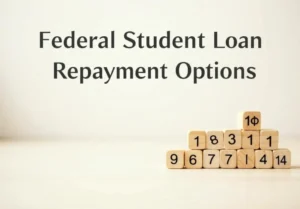
Getting a loan to pay off debt might seem like running in circles, but it’s a move that can spark fresh financial hope. Many people find themselves overwhelmed by multiple debts, and a loan could simplify things while possibly lowering interest rates.
Yes, you can get a loan to pay off debt, commonly known as debt consolidation. This involves taking out a new loan to cover your current debts, ideally at a lower interest rate. But there’s much more to it than just that simple solution, including insights and strategies that could make a real difference in your financial journey.
Key Takeaways:
- You can consolidate debt using various options like personal loans, home equity loans, and balance transfer credit cards, each with unique benefits and risks.
- Assess your credit score and monthly budget to determine if consolidation is right for you, as this will impact your interest rates and repayment capacity.
- Choose lenders carefully by comparing interest rates, fees, and customer service to ensure you secure the best loan terms for your financial situation.
Disclaimer: The information on this blog is for general educational purposes only and does not constitute personalized financial advice. While we strive for accuracy, FinanceBeacon cannot guarantee the reliability or suitability of the content for your specific financial decisions. Always consult a qualified financial advisor before making any financial choices. Use this information at your own risk.
What Types of Loans Can You Use for Debt Consolidation?
Debt consolidation loans come in several forms, each with its own pros and cons. Understanding your options can help you choose the best path to simplify your finances.
1. Personal Loans : These unsecured loans can be used for various purposes, including debt consolidation. They often come with fixed interest rates and set repayment terms, making them a straightforward choice if you need a lump sum to pay off multiple debts. Interest rates can vary widely based on your credit score.
2. Home Equity Loans : If you own a home, you might have equity that you can tap into through a home equity loan or Home Equity Line of Credit (HELOC). These often have lower interest rates because they’re secured by your property. However, remember that failing to repay could put your home at risk.
3. Balance Transfer Credit Cards : This option involves transferring high-interest credit card debt to a new card with a lower interest rate, usually during an introductory period. It can save you money on interest, but watch out for transfer fees and make sure you can pay off the balance before the promotional rate expires.
4. Credit Union Loans : If you’re a member of a credit union, consider their debt consolidation loans. They typically offer lower interest rates and more lenient terms than traditional banks, particularly for borrowers with less-than-perfect credit.
Each option has its unique benefits depending on your situation, so take your time to evaluate what fits best. Be sure to calculate potential savings and total costs to make the wisest decision.
How Do You Determine If This Strategy Is Right for You?
Figuring out whether to consolidate debt with a loan boils down to a few key factors related to your financial health and goals.
Start by evaluating your current debts. List them out, paying attention to the interest rates and monthly payments. If you’re juggling multiple high-interest debts, a consolidation loan could lower your overall interest and simplify your payments into one single monthly bill.
Next, assess your credit score. A higher score can help you qualify for better rates, making consolidation more effective. If your credit is in good shape, consider taking action. On the other hand, if your score needs work, it might be wise to boost it before seeking a loan, as that could yield substantial savings in interest.
Another crucial step is to calculate your capacity for repayment. Make sure your monthly budget allows for the new loan payment. If consolidating means stretching your budget thin, you might want to rethink this strategy or explore adjustments in your spending.
Finally, consider your long-term financial goals. Consolidation can certainly aid in short-term relief, but it’s essential to ensure that you’re making strides toward a more sustainable financial future. Think about establishing a solid plan that includes not just getting out of debt, but also building savings and avoiding future debt traps.
Each decision should blend a clear understanding of your situation with your aspirations. Just remember, the goal here is to create a manageable path forward, not to swap one set of challenges for another.
What Are the Benefits of Consolidating Debt?
Consolidating debt can simplify your financial life in several ways. One major perk is the potential for lower interest rates. By rolling multiple high-interest debts into a single loan with a lower rate, you can save a good chunk on your monthly payments. It’s like consolidating your subscriptions for a better deal.
Another advantage is the simplicity of managing payments. Instead of juggling multiple due dates and creditors, you’ll have just one loan to keep track of. This can help reduce the chance of late fees, which is a win for your budget.
You might also see a boost in your credit score over time. As you pay down the consolidated debt, your credit utilization ratio improves, which can positively affect your score. If you make regular payments on time, that solid payment history will help too.
Additionally, consolidating can provide a pathway to calm your financial stress. Fewer bills to manage can ease anxiety and give you a clearer path toward financial stability.
What Are the Risks Involved in Getting a Consolidation Loan?
While consolidating debt has its perks, there are also risks to consider. One significant downside is the potential for additional fees. Many lenders charge origination fees, and if you’re not careful, those can eat into your savings from a lower interest rate.
There’s also the risk of defaulting. If you miss payments on your new loan, the consequences can be dire, including higher interest rates or losing the collateral if it’s a secured loan.
One angle often overlooked is the temptation to accrue more debt. When you pay off existing debts, you might feel a false sense of financial freedom. This could lead to overspending or accruing new debt, putting you right back where you started—perhaps even deeper in the hole. To guard against this, establish a solid budget and stick to it. Create new financial habits that prioritize saving or spending within your means to avoid falling into the same traps again.
Understanding these risks can help you make a more balanced decision about whether a consolidation loan is right for you.
Interest Rates: What to Expect
Finding the right loan to pay off debt? You’ll want to pay attention to interest rates, as they can make a huge difference in your total repayment amount. On average, debt consolidation loans can have interest rates ranging from 5% to 36%, depending on your credit score and the lender’s offer.
For those with excellent credit (typically a score of 700 or above), you might snag rates on the lower end—5% to 10%. If your credit isn’t in tip-top shape, be prepared for higher rates in that 15% to 36% range.
Here’s a quick breakdown of what you might expect:
- Excellent Credit (700+): 5% – 10%
- Good Credit (680-699): 11% – 15%
- Fair Credit (620-679): 16% – 24%
- Poor Credit (below 620): 25% – 36%
How Can You Prepare for Getting a Loan?
Getting a loan to pay off your debt can be a smart move, but preparing properly makes all the difference. First things first, check your credit score. A solid score can help you snag better interest rates, so you want to know where you stand. Sites like AnnualCreditReport.com let you access your credit report for free once a year—take advantage of that.
Next, gather your documentation. Lenders typically require proof of income, tax returns, and bank statements. Having these ready will speed up the process and demonstrate your reliability. Consider creating a checklist to ensure you don’t overlook anything important.
Understanding loan terms is critical, too. Read through the fine print; look for APR, penalties for late payments, and prepayment options. Knowing this helps you evaluate whether the loan is genuinely beneficial for your situation.
Another useful tip: calculate your debt-to-income ratio. This will show lenders how much of your income goes toward debt and can influence their decision. Ideally, you want this ratio below 36%.
What Should You Look for in Lenders?
Choosing the right lender can significantly impact your overall debt strategy. Start by comparing interest rates among various lenders—this can save you hundreds in the long run. Look beyond just the advertised rate; ensure you consider the APRs that might include fees.
Fees can really add up, so pay close attention to any origination fees, prepayment penalties, or annual fees. You want a loan that won’t hit you with surprise costs later.
Another factor to weigh is customer service. Is the lender easy to reach if you have questions? Reading reviews can provide insight into how responsive they are—look for lenders who value communication and support. If you’re not comfortable speaking with them, it might be worth considering other options.
Also, check if the lender offers any financial education resources. This could give you added peace of mind, knowing they care about helping their borrowers succeed.
Lastly, don’t hesitate to ask for disclosures in writing. A reputable lender will provide a clear breakdown of all terms, ensuring you understand what you’re agreeing to before signing anything.
What Will Your Monthly Payments Look Like?
Understanding what your monthly payments will entail is crucial when opting for a loan to pay off debt. Let’s break it down. If you’re consolidating debt via a personal loan or balance transfer credit card, you’ll need to consider the interest rate, loan amount, and repayment term.
To calculate your monthly payments, use this formula:
Monthly Payment = [Principal × (Monthly Interest Rate)]
÷ [1 – (1 + Monthly Interest Rate)^-Number of Payments]
- Principal refers to the total amount of the loan.
- Monthly Interest Rate is your annual interest rate divided by 12 months.
- Number of Payments is the total months you plan to pay off the loan.
Using these figures gives you a solid estimate of what to expect each month. It’s wise to use online calculators, too; they simplify the math.
When you lay this out against your overall budget, ensure it fits within your monthly expenses without creating financial strain. Prioritize making this payment consistent, as missing payments can lead to higher interest rates and further debt.
What Unique Strategies Exist for Managing Debt After Consolidation?
Consolidating debts can be a pivotal step toward financial freedom, but managing what comes next is equally important. After consolidation, you will want to ensure you don’t slip back into previous habits. Here are some effective strategies you might find helpful:
-
Create a Budget : Build a clear and realistic budget that outlines your income and expenses. Allocate a specific amount for your loan payment, sticking to it like glue.
-
Emergency Fund : Start or build an emergency fund. Aim for enough to cover 3-6 months of expenses. This buffer can prevent future debt if unexpected costs arise.
-
Automate Payments : Set up automatic payments for your loan. This ensures you never miss a due date, helping you maintain good credit and stay on track.
-
Track Spending : Use apps or spreadsheets to track your spending. Awareness can help curtail unnecessary purchases and keep your finances in check.
-
Financial Education : Invest time in learning about personal finance. Read books, follow credible finance blogs, or listen to podcasts. Knowledge can significantly influence better decision-making.
-
Accountability : Team up with a financial buddy or consider working with a counselor. Sharing your goals and progress creates accountability and motivation.
Remember, the goal is to build sustainable habits. Focus on principles that work for you, and don’t hesitate to adjust your strategies as you go.
As a financial advisor, my goal is to guide you through the world of personal finance with clear, practical advice. With a dedication to clarity and your financial well-being, I’m here to provide insightful guidance and support as you build a foundation of wealth and security.







